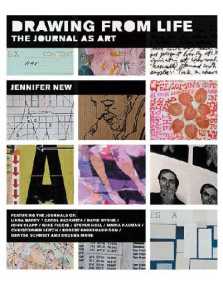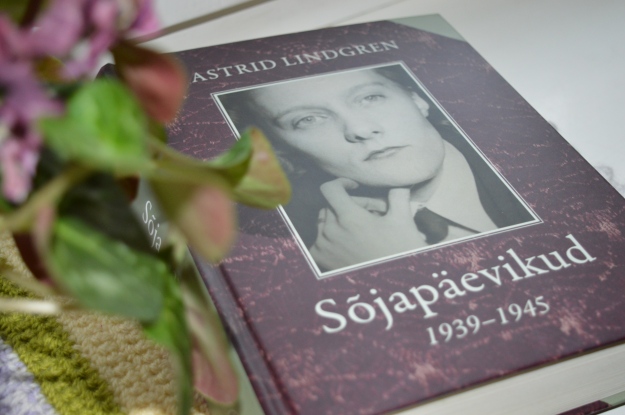
Raamat jõudis minuni sel teel, et ükspäev toksisin Krisostomusesse otsingusõna drawing. Esimeste seas tuli välja see raamat.. Kuna ma suhtun üsna kirglikult märkmikesse ja päevikutesse, siis tekkis huvi teada saada, et milliseid päevikuid on olemas… Raamatus on 31 inimese päevikud; nende autorite hulgas on kunstnikud, illustraatorid, fotograafid, arhitektid, kirjanikud, teadlased, insenerid.. Igaühe päevik on isikupärane väike maailm.
.
Journals are utilitarian objects transformed by repeated and fond use. They hold life in them, which is why we cannot let them go.
.
“I did not take up a journal again until college, when a period of intense dreaming compelled me to start one. Nearly two decades of continuous journals have followed, though months sometimes pass between entries. Rarely visual in nature, they do not even amount to a writer’s journal. Rather, they contain the emotional stuff of everyday life, a young woman’s search for self: some whining and self-pity, a lot of fretting and occasional joy.”
.
Journals are a place to play, a safe haven away from our embedded editor. We vent and brainstorm and try on different guises in our journals. They are seldom read by others – unless we invite someone in. In them, we are released from the obligation to create polished work or to play nice.
.
Not surprisingly, journal keepers tend to have specific material requirements about their supplies. Lined paper versus unlined. The thickness of the paper. Softbound or hardbound. All can make or break the experience.
.
“Some diaries seem too good to use. That’s something that’s always been a conflict to me. They seem so perfect until i write on the first page. Then somehow they seem ruined.”
.
The journal helps us see. The act of putting something down in a book – sitting and drawing, finding the right words of description, mixing the truest colors – forces us to look so much closely at a subject.
.
Japanese women were confiding their emotions to “pillow books”, kept in a slipcase and away from a husband’s eyes, for centuries, before there was anything like a tradition of diary-keeping in the West.
.
The journal’s primary purpose is to serve as a place for its author to sort ideas and observations. An internal dialog runs through its pages, of which one contributor says: “It’s the only truly frank conversation I can ever have.”
.
In the end journals may show more fully than any finished piece what it has meant to be us.
.
Identy is at the base of all these journals. Who am I? Where am I going? Why?
.
He sometimes looks through old journals and thinks: “Jesus, what the hell was wrong with me.”
.
“My journal was a complete saviour for me, because otherwise I’d have been breaking down and crying. But instead I just opened it up.”
.
“I was free between the pages.”
.
“My journals are a collection of things I’m curious about.”
.
“A journal is the friendliest place an artist can practice being honest with himself, which is scary thing to learn how to do.”
.
“It’s very therapeutic to go back and read how my thoughts developed over time.”
.
“I have a leather bag I take with me wherever I go. Into it goes my travel docs, my camera, my small notebook, my phone… Of those, the little notebook is by far the most important.”
.
8/10.





